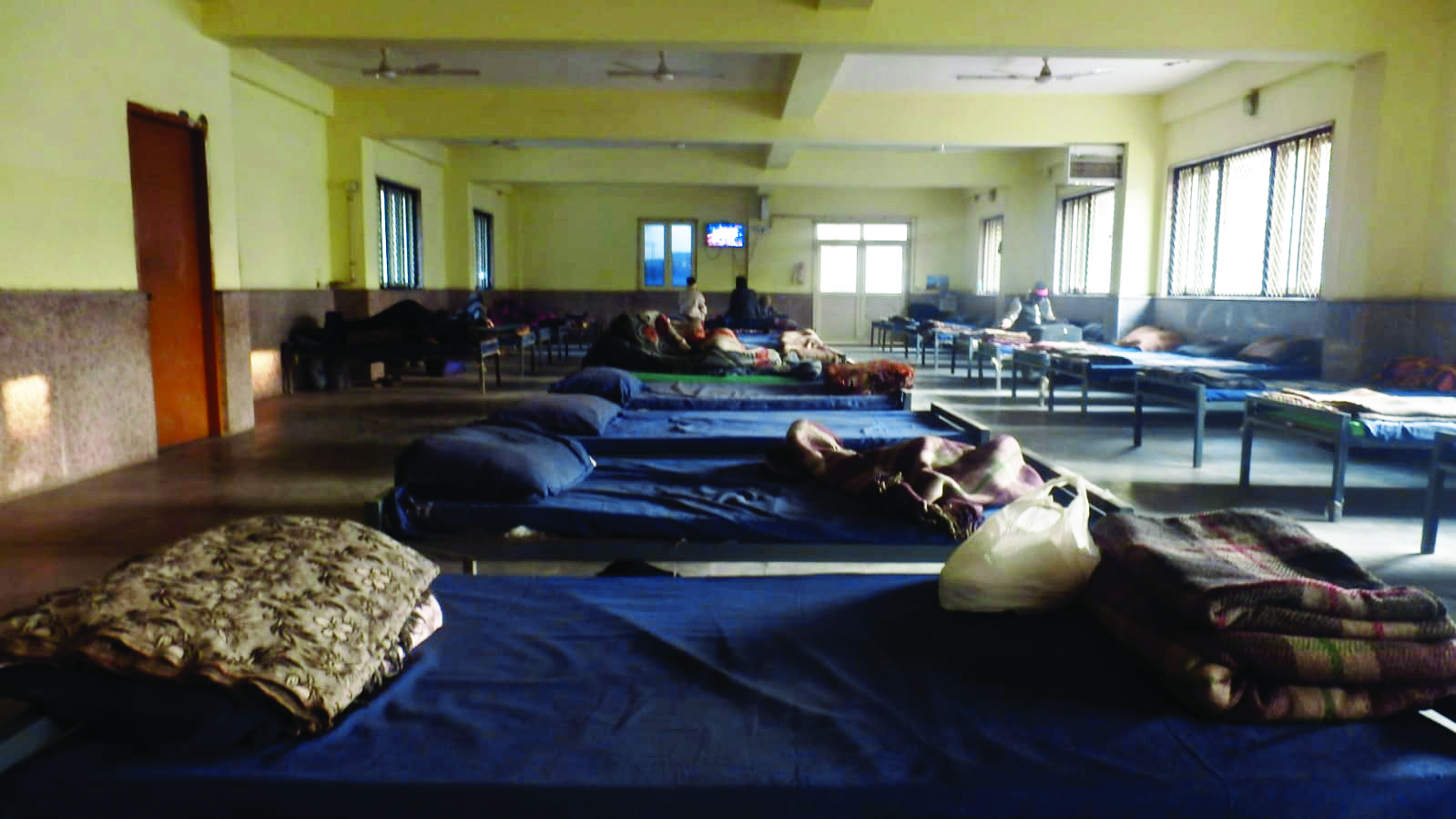Homeless fights cold and poor mental health at night shelters

New Delhi: Premwati, a 35-year-old woman from Shirdi, Maharashtra, like most of the women in adjacent chambers of Geeta Colony night shelter, also became homeless owing to the death of her husband and lack of acceptance from her other family members. With no clear plan of how she will get out of the shelter home, Premwati waits in dismay for her son to recover.
The number of homeless in Delhi is debatable, ranging from 16,000 as per government figures to 2 lakh according to civil society groups. Owing to this lack of clarity in the number of homeless in Delhi, the actual occupancy rate and utility of night shelters can never be put to question.
To beat the steep mercury drop in Delhi, 15 rescue teams work from 8 pm to 4 am across the capital to get homeless people to one of the 196 designated shelter homes. Of the 16,000 homeless in Delhi, 10,000 are roughly women.
“Night shelters across Delhi are managed by six central management agencies, which coordinate with DUSIB, DCW, local police stations and counsellors.”, Nitesh Kumar, Project Coordinator, SPYM, says.
Night shelters work on half occupancy: Regarding the occupancy in night shelters, Deputy CM Sisodia said: “The government has established fooding and lodging facilities for homeless people across 195 shelter homes which have the capacity of accommodating over 17,000 people.”
Devesh Gupta, Manager, Prayaas Night Shelter Project told Millennium Post, “Pre-COVID, per hall occupancy was 50, we made people sleep on darees. During covid, darees were replaced by 6*3 single beds. Now each hall could only house a maximum of 20 beds, which reduced the capacity to less than half. When official websites still show occupancy to be 50 people, on ground we are only able to house 20 people per hall.”
Night shelters might have become spots of safe physical harbour but many inside the shelters suffer from very poor mental health, owing to hopelessness about the future.
RamJi, 62, was a resident of Gandhinagar and suffered a major arm injury that led him to lose his job. He currently occupies a bed in RainBasera 196 for 4 months.
“I want someone in the shelter home to train us in basic moral and social conduct, for I know I will not get employed. For now, all I want is to live satisfied and happily for the rest of my remaining life. I don’t want people intoxicating themselves and creating problems here, for this is my last resort, and theirs too.” For RamJi, a TV in his ward makes a world of difference in his life.
Women in such shelter homes experience a double burden of sustaining themselves as well as their young children. Most of these women had suffered sexual or domestic abuse from their partners, children or relatives.
Savita Sahni (55) is a handicapped homeless woman who occupies a family cabin in Geeta Colony night shelter. She told Millennium Post, “I live on the second floor, I get food but nobody will run my errands 24*7. I can’t use the washroom properly, don’t have a wheelchair and can’t socialise much. I bought a gas cylinder from my pension money to open chai tapri. My condition has started to irritate me and I want to get independent, I know it’s difficult.”
While the caretakers are trained to handle the homeless population, there is a need for qualified counsellors to provide special sessions inside rain baseras.



